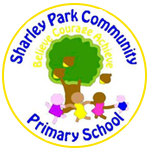Science

Sharley Park Community Primary School follows the National Curriculum in England Science Programme of study.
As stated in the Science Programme of Study for KS1-2 (National Curriculum 2014):
A high-quality science education provides the foundations for understanding the world through the specific disciplines of biology, chemistry and physics. Science has changed our lives and is vital to the world’s future prosperity, and all pupils should be taught essential aspects of the knowledge, methods, processes and uses of science. Through building up a body of key foundational knowledge and concepts, pupils should be encouraged to recognise the power of rational explanation and develop a sense of excitement and curiosity about natural phenomena. They should be encouraged to understand how science can be used to explain what is occurring, predict how things will behave, and analyse causes. The national curriculum for science aims to ensure that all pupils:
- develop scientific knowledge and conceptual understanding through the specific disciplines of biology, chemistry and physics
- develop understanding of the nature, processes and methods of science through different types of science enquiries that help them to answer scientific questions about the world around them
- are equipped with the scientific knowledge required to understand the uses and implications of science, today and for the future
At Sharley Park Community Primary School we have a clear rationale for the teaching, progression and impact of our Science curriculum.

Intent
The aim of science at Sharley Park Primary School is to stimulate children’s interest and understanding of science in the world around them. We want our children to engage with the essential aspects of science and to investigate, explore and learn along the way. We aim to get our pupils to dive into practical and theoretical experiments through enriching lessons and topics. See Journey curriculum long term plan – this sets out our vision of how and when Science units are taught. It has been designed by teachers and checked by SLT and our curriculum leads to ensure the National curriculum is covered.
Implementation
Science is taught through our Journey curriculum. Science units and objectives are matched to those in set out in the National Curriculum. In EYFS, scientific knowledge and skills are taught under the heading ‘Understanding the World’. Science is usually taught for one afternoon per week (2 hrs). We ensure the teaching of science is as practical and hands-on as possible so our children can enjoy and remember their learning! The responsibility for monitoring and review rests with the science co-ordinator. We aim to make cross-curricular links where possible to engage the children in their wider learning
See medium terms plans which show how the vision is delivered. These are produced by teachers and checked by the science coordinator, our curriculum leaders and SLT to ensure progression from EYFS to Y6, building on prior learning.
Impact
The children record their work in the science books (yellow in KS1 and orange in KS2). At times, we use Seesaw to record the children’s work. Teachers use the school’s whole class feedback and marking policy to assess the children’s knowledge and to decide how successfully they have meant the given learning objectives. Those that have met the objective will have their name highlighted in green on the whole class feedback sheet. Those that are working towards the objective will have their name highlighted in pink on the whole class feedback sheet. The science coordinator keeps samples of work from across the school which are displayed on the science display board (current outside the y6 classrooms). This work is updated throughout the year and old copies of work are kept in a floor book to showcase the work being completed.
